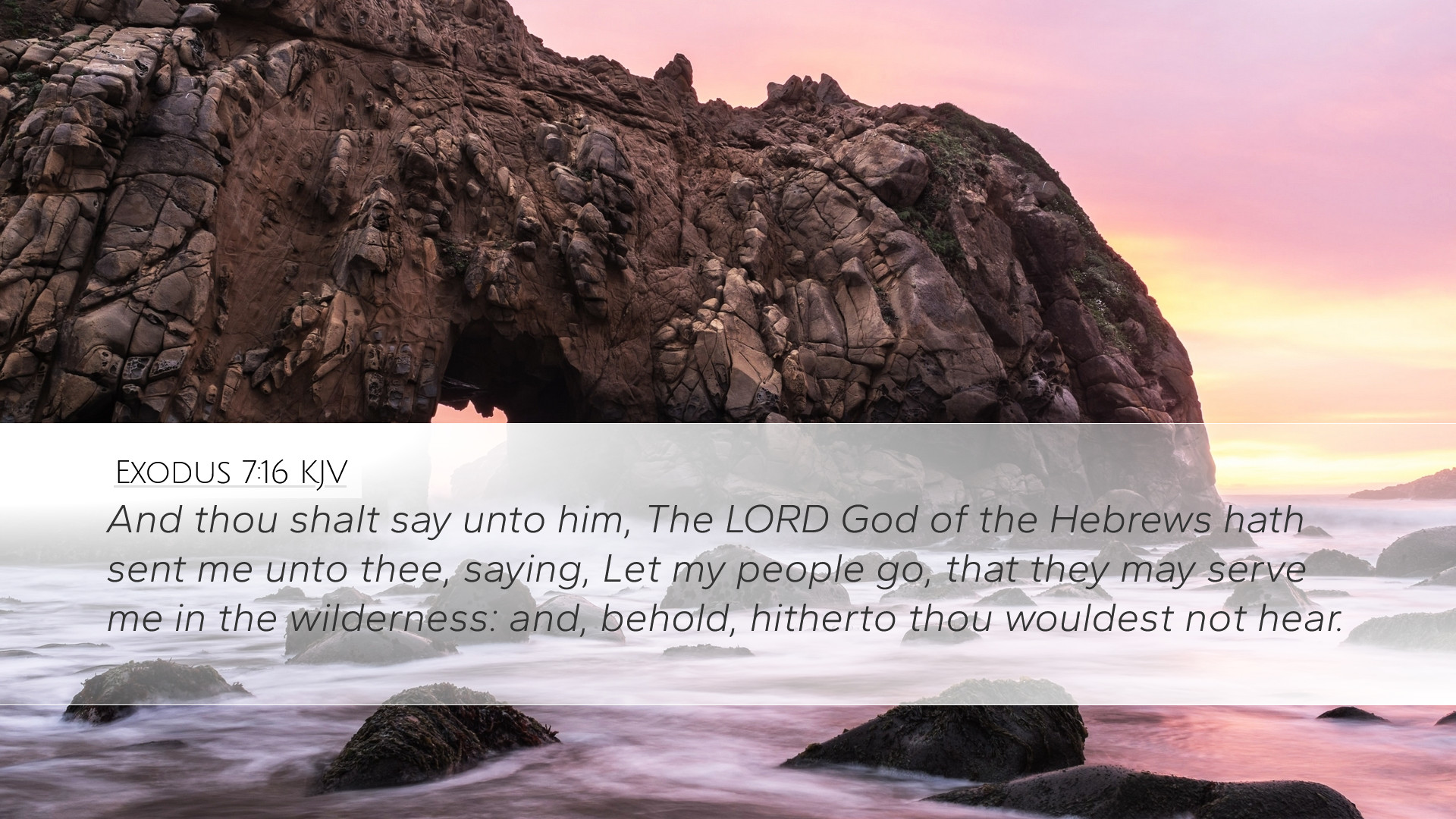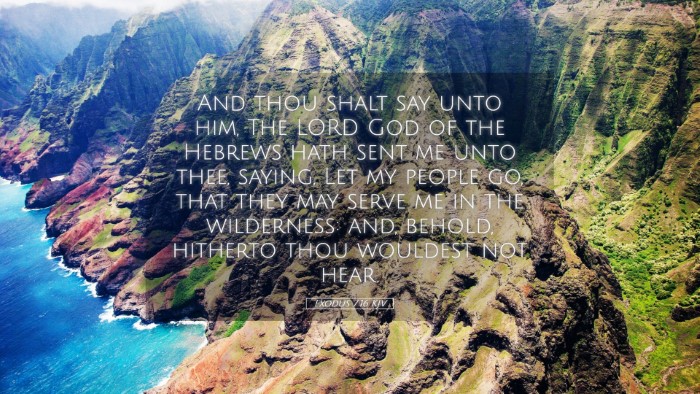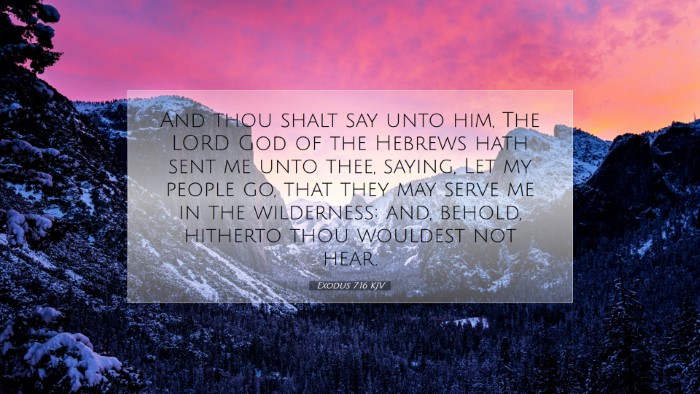Exodus 7:16 Commentary
Bible Verse: "And thou shalt say unto him, The Lord God of the Hebrews hath sent me unto thee, saying, Let my people go, that they may serve me in the wilderness: and, behold, hitherto thou wouldest not hear." (Exodus 7:16)
Introduction
This verse marks a significant moment in the narrative of the Exodus and captures God's directive to Moses as he approaches Pharaoh. The call to "let my people go" serves as a critical proclamation of God’s sovereignty and a prelude to the great deliverance of Israel from Egyptian bondage.
Insights from Commentators
Commentary from notable theologians provides a deeper understanding of the implications within this verse.
Matthew Henry's Commentary
Henry emphasizes the command as both a simple directive and a profound declaration of liberating authority. He notes that Moses is sent with a divine message that carries weight and consequence. The reference to "the Lord God of the Hebrews" signifies that God identifies with His people and asserts their need for freedom as a key facet of their identity.
Albert Barnes' Notes
Barnes highlights the response of God to Pharaoh's hardness of heart. He points out that the phrase "Let my people go" presents God’s demand not just for freedom but for service. This dialectic between liberation and servitude is fundamental to understanding the nature of salvation and God's purpose for His people. Furthermore, Barnes explains that the wilderness signifies a space for communal worship and connection with God, indicating that true freedom is found in submission to God's design.
Adam Clarke's Commentary
Clarke offers a historical perspective, reminding readers that Pharaoh’s refusal to heed the divine command sets the stage for the ensuing plagues. He underscores the obstinacy of Pharaoh as reflective of human rebellion against divine authority. Clarke elucidates that Moses' role as a mediator acknowledges God’s consistent call to humanity to recognize His authority and respond in obedience.
Theological Implications
The theological implications of Exodus 7:16 are profound. It posits critical questions about authority, obedience, and the nature of freedom.
- God’s Authority: The phrase underlines the supremacy of God. Even rulers like Pharaoh are subject to divine commands.
- Human Response: Reflecting on Pharaoh's response presents a cautionary tale of human pride and disobedience.
- Calling to Service: The call is not merely for liberty but for service, which remains a central theme in the journey of faith.
Application for Today
For pastors, students, theologians, and scholars, Exodus 7:16 serves as a reminder of the ongoing relevance of obedience to God’s call. The narrative encourages believers to reflect on their own lives in light of God’s authority and the purpose behind their freedom.
- Embrace God’s Call: Like Moses, believers are also called to confront the prevailing powers that oppose God’s work.
- Understanding True Freedom: The concept of freedom must be framed within the context of spiritual service and relationship with God.
- Confronting Hardness of Heart: This story invites introspection about areas of resistance within our hearts towards God's directives.
Conclusion
Exodus 7:16 serves as a landmark declaration of God's desire for His people to be liberated for His service. Through the combined insights of respected commentators, a richer understanding emerges of the themes of authority, disobedience, and the holistic nature of freedom within God’s overarching plan for humanity. As believers respond to His call, they affirm their identity as God's people and participate in His redemptive narrative.


